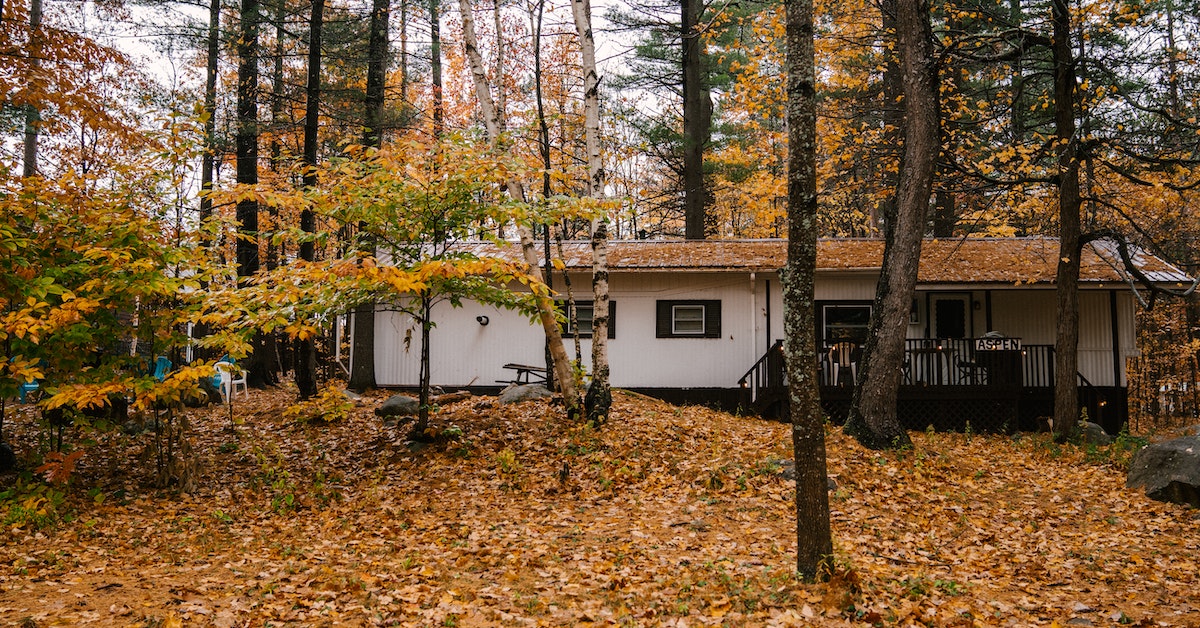Whether you’re looking to buy a home to live in or you’re searching for your next investment property, getting a good deal is almost always a central concern. Depending on your location, you might find that buying a foreclosed home lets you purchase a property at a price you would never get on the open market. Before you head to a sheriff’s sale auction, though, you’ll want to learn how to make an offer on a foreclosure.
How you make an offer on a foreclosed property depends on what stage of the process the property is in.
On top of that, you’ll want to make sure you understand the risks of buying foreclosed property before you start submitting bids. Buying foreclosed properties can be a way to save a lot of money on a home purchase, but it can also be a way of obtaining a money pit if you aren’t careful.
Foreclosure is the legal process through which a mortgage lender repossesses a property and resells it when the borrower isn’t able to pay back their home loan.

In the United States, 42% of households have mortgages and the average mortgage debt is a little over $200,000. According to the US Census Bureau, the median monthly mortgage payment is $1,595.
When one of these Americans isn’t able to make their monthly mortgage payments month after month, the lender will begin the foreclosure process in order to attempt to recover the amount owed on the defaulted loan. Foreclosure most often begins when the borrower misses a specific number of monthly mortgage payments, but other breaches of the mortgage document can also result in foreclosure.
There are several different stages that foreclosures can go through. How you find foreclosure sales and how you make an offer on them is dependent on what step in the process they are in.
When you are making an offer on properties that are still in the early stages of foreclosure, for example, the original homeowner might maintain ownership. On the other hand, it's possible that the home is now owned by a government or a bank.
Let’s look at five of the different types of foreclosures.
When a homeowner fails to make their mortgage payments, the lender will notify them that they are in default on their loan. Once they have been given notification, the property is in pre-foreclosure. Basically, the homeowner has the opportunity to try and pay back what they owe or sell the property on their own during this time in order to avoid the actual process of foreclosure.

There are a number of reasons why a homeowner might be motivated to sell their home before having to go through foreclosure. Having your home foreclosed can wreak havoc on a person’s credit history, for one, and can therefore have an impactful and negative impact on their prospects in the future.
You can usually find pre-foreclosures in city and county courthouse buildings as well as on websites like Foreclosure.com.
A short sale doesn’t necessarily mean that the homeowner is in default on their home loan. What it does mean, though, is that the lender has agreed to accept less for the property than how much they are still owed on the mortgage. In order for a lender to agree to this type of scenario, the borrower usually needs to show that they are dealing with money troubles that will most likely result in defaulting on the loan.

When it comes to short sales, it’s common for the property to be underwater. This means that the current market value of the property is less than how much is still owed on the mortgage.
Lenders have to agree to “sell the property short” in order for homeowners to qualify for this type of sale.
If you are interested in buying short-sale properties, you can look out for listings that are advertised as “pending bank approval.”
The process of buying a short-sale home is very similar to the regular real estate purchase process. However, there will be different language in the contracts that have to do with the bank's requirement to approve the deal. On top of that, the whole process can take a lot longer than a normal home sale, as the lender might take months to respond to an offer you made on a property.
You can frequently search by short-sale status on listing services and real estate websites.
What happens if a homeowner defaults on their mortgage and isn’t able to pay off the mortgage payments they owe or sell the home on their own? Once the grace period has gone by that exists to help the buyer catch up on payments, there will be a sheriff’s sale held.

A sheriff’s sale is an auction that intends to help the lender recoup the money they are owed for the defaulted loan.
It’s common for these auctions to occur on the steps of the city courthouse and they’re typically managed and operated by local law enforcement.
Auctions of foreclosed homes are held at a publicly announced place, date, and time. During the auction, each property typically goes to the highest bidder.
You can usually find information listing sheriff sale auctions both online and in local newspapers.
It isn’t uncommon for people to use loans guaranteed by the U.S. government in order to purchase a home– Federal Housing Administration (FHA) and the Department of Veterans Affairs (VA) in particular.
When a homeowner doesn’t make mortgage payments on these homes, the government repossesses them. Then, brokers that work on behalf of the agency sell the properties.
To purchase government-owned property, you’ll want to contact a government-registered broker. The U.S. Department of Housing and Urban Development (HUD) has a list of these registered brokers on its site.
Sometimes, foreclosed are put up at auction and they don’t sell. When this happens, the property goes back to the possession of the bank.
At this point, the property is known as real-estate owned (REO).
Lenders will commonly have REO departments that manage these properties. There are a number of different websites, including RealtyTrac, that let you search bank-owned properties by location.
Are you looking to buy investment property remotely but aren’t sure where to look? Check out our guide to the best places to buy a rental property.
The process for making an offer on a foreclosure will depend on what stage in the process it’s in. Let’s look at how you would make an offer for each of the types of foreclosures discussed above.
When a home is in pre-foreclosure, the homeowner is still in possession of the house. During this time, they have a grace period where they can repay what they owe or sell the property in order to avoid foreclosure and its repercussions.
Some investors like pre-foreclosures for a number of reasons– for example, there is often less competition from other buyers because they aren’t typically listed. On top of that, investors can sometimes get great deals on pre-foreclosures because they are usually sold for below-market rates.
These properties are usually sold as-is, though, and there can be hidden costs to buying pre-foreclosures. You’ll also want to factor in the closing costs and the potential downsides of this investment strategy.
If you have done your research about pre-foreclosures, have found a property you believe is a good investment, and are ready to make an offer, it’s a good idea to get a pre-approval letter from a lender first.
Unless you’re an old pro, it’s usually advised to work with a real estate agent that is experienced with foreclosures and pre-foreclosures during this process. They will be able to help you make sure that everything checks out and help you find the right price that is appealing to both you and the seller.
When you work with an agent, they can help you negotiate with the owner and increase your odds that they will accept the deal.
When the homeowner is trying to sell the home for less than the amount they owe on the mortgage, they are usually highly motivated to sell. Because the banks won’t be receiving the full amount of money they’re owed with the sale of the property, this type of sale has to be approved by the lender.
It’s worth understanding that buying a short-sale property isn’t usually a quick process. You’ll need to be patient with the lender and be willing to purchase the home in as-is condition.
When making an offer on a short-sale property, it’s a good idea to offer an attractive earnest money deposit. While there isn’t anything written in stone when it comes to making an earnest money deposit, it can speak volumes about how serious you are if you offer between 1% and 5% of the sales price.
When making an offer on a short sale, it’s best to avoid asking for any special reports or repairs. Anything you ask for of this sort will lower the bottom line for the lender, who usually won’t accept the lowest offers. You usually shouldn’t try to negotiate for major repairs, even if the property is in dire need of them.
Once you’ve made your offer, you should expect that it could take six to eight weeks or even longer for the bank to get back to you. While you might luck out and hear the news in three to four weeks, lenders are notoriously slow in the part of the process. Basically, you should assume that this part of the process will take two to three months. If you do receive an approval letter, though, you’ll want to be ready to move quickly.
A few tips when it comes to making an offer on a short sale property:
Again, it’s not a bad idea to work with a real estate agent that has experience with short sales if you are interested in this investment strategy.
Making an offer on a foreclosure at an auction is a completely different process than for pre-foreclosures or short sales. Sheriff’s sale auctions are public auctions where anyone can show up and bid on properties that have been foreclosed.
These properties are sold “as-is,” and you often don’t have the opportunity to walk inside the property until you purchase it. This is one of the reasons that buying foreclosures is a risky endeavor.
You can (and should) still do your due diligence before the auction, though. You’re able to look at the home from the curb without stepping on the property and otherwise research the history of the property to the best of your abilities. It’s not a bad idea to invest in full title reports to learn if there are any existing liens on the property.
If you decide that there is a foreclosure property you want to buy at auction, you’ll want to research the auction process in your state. In many states, you have to pay in full on the day of the auction. Payment methods that are accepted for foreclosures often include wire transfers, money orders, and cashier’s checks.
This isn’t a situation where you can simply get approved for a mortgage and bring a preapproval letter. You need to be ready to hand the cash over right away– some states give you a few days to move money around while others require you pay in full on the same day.
How much money you should bring on the day of the auction depends on how much you’re willing to spend (and whether you have to pay in full or if you only have to make an initial down payment on auction day.)
Some locations might require 10 percent while others might require 20 percent. In some places, you might have thirty days or more to close on the home after successfully bidding on the property, while you might have significantly less in other locations.
You can find government-owned properties on the Department of Housing and Urban Development website. Real estate brokers are also employed by the government to list government-owned properties on MLS databases.
In order to make an offer on government-owned property, you have to use a HUD-registered selling broker or real estate agent. The HUD website offers a list of brokers that are approved for this purpose.
HUD commonly holds a silent auction in order to sell their foreclosed properties. Real estate agents approved by HUD will accept sealed bids on homes during this time.
Usually, only people who plan to live in the property (known as owner-occupants) can make bids on the house. Once this period has passed, people who are investors can input their offers.
A professional appraisal will already have been done on the house by the Department of Housing and Urban Development. However, your lender might still require that you obtain another appraisal report.
If you are looking to buy a USDA property, you will have to work with a real estate agent that is qualified by the USDA in order to submit an offer. Similarly, you’ll want to work with a qualified real estate agent in order to submit a bid for a VA foreclosure.
Finally, let’s take a look at how to make an offer on bank-owned homes. These are the homes that the lender wasn’t able to sell at auction. These homes are typically priced below market value, meaning that investors have the opportunity to get a steal. Of course, this isn’t a secret to seasoned investors, and there can be quite a bit of competition for real estate-owned properties.
When making an offer on an REO property, it’s worth understanding how banks choose their offer.
Typically, banks will ask all interested buyers to offer their best and highest offer. They can then go through the offers and find the ones that meet their requirements and terms. You shouldn’t expect that the lender will simply accept your offer because you were the first to submit it.
Instead, there is usually a ton of back-and-forth negotiation during this process. Generally, REO real estate transactions will be handled by an asset management company hired by the bank. This company will follow guidelines given to them by the bank in terms of how to manage the process, such as how long to wait before making a price reduction on a home.
If you’re going to make an offer on an REO property, it’s a good idea to thoroughly research the history of the property. Ask your real estate agent to help you obtain the Sheriff’s Deed, Trustee’s Deed, or other important documents. You’ll also want to look at any liens or loans on the property as well as factor in the cost of repair and closing costs. Lastly, you’ll want to try and find out how much competition you have in order to price your offer accordingly.
The fact that foreclosed homes are cheaper than comparable homes selling on the local market makes them very appealing to investors. In many cases, foreclosures are sold at a large discount compared to market value. However, how much of a discount you’re getting when you buy a foreclosure is going to vary based on your region and specific location.
There might be additional incentives bundled into the deal by the seller such as a low-interest rate, reduced down payment, or getting rid of some closing costs or appraisal fees.
The reasons that these properties are sometimes sold so cheap are multifaceted.
When it comes to short sale listings or properties in the pre-foreclosure stage, you’re usually dealing with an owner that is in financial trouble and needs to sell their home quickly in order to avoid foreclosure.
This means that the sellers don’t really have a position of power in the negotiation, and buyers can often benefit. Of course, it’s important to remember that these people are going through an understandably difficult period.
For properties that have been seized and will be put up for auction, investors can sometimes get an even better deal. The sheriff’s office doesn’t want the house, and lenders aren’t interested in being landlords. Buyers often have an edge in these sales, though financial institutions still have to answer to their auditors and investors.
Of course, another reason that foreclosures are so cheap is that you’re usually buying them “as-is.” Properties owned by people in financial distress often have dealt with deferred maintenance or are in need of significant repair. This means you’ll need to factor in the cost of repairs when considering how much you’re willing to pay.
On top of that, it’s important that you consider the risks of investing in foreclosed properties, which are many.
There’s nothing better than getting an amazing deal on a property that you’ll be able to rent out. After all, the less you spend on the rental, the more wiggle room you have in terms of absorbing vacancy or dealing with the costs of maintenance and repair. When you get a steal at a sheriff’s auction or through a different foreclosure purchase method, you get to put more of your rental income right into your pocket right away.
However, you definitely don’t want to assume that a foreclosed home is automatically a good deal. In some locations, there might be so much competition for foreclosures that the prices get bid up too high for your comfort level. Other properties might have hidden problems that you aren’t able to learn about before you purchase them, making them much less affordable than you initially thought.
Buying foreclosures is a classic real estate investment strategy, but it’s something that requires a lot of research. No matter how cheap the property is, you’ll want to make sure that all of the numbers lean in your favor using a rental property calculator. This way, you can ensure that the property you purchase is a good addition to your portfolio and will help you reach your financial goals.
We encourage you to share this article on Twitter and Facebook. Just click those two links - you'll see why.
It's important to share the news to spread the truth. Most people won't.